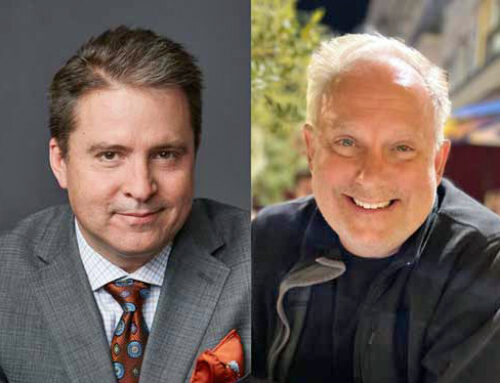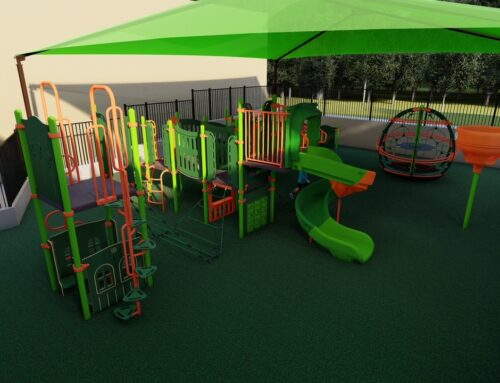When they walk across the stage this month, our neighborhood’s graduates will give us plenty to be proud of. They will have marked life’s first monumental milestone, and many will do so with a trail of honors and accolades.
Beneath the ornamental cords and scarves, what we won’t see are the trials they endured to get where they are. It’s true that high school is one of the most emotional, difficult times of life, but a few of these seniors have had to overcome much more than just hormones and the painful process of maturation.
Here are the stories of three neighborhood seniors who not only beat the odds, but managed to flourish in the face of them.
ALEXANDRA LIPPAS
It wasn’t until she was 14 that Alexandra Lippas could spot an individual leaf on a verdant tree. Or pick out a pattern on the ceiling, or notice a wedding band on her teacher’s left hand.
Lippas was born with congenital nystamus, a genetic disorder that rendered her “blind as a bat,” she says.
“It’s what people have when they’re older and get macular degeneration,” Lippas says. “But mine doesn’t get progressively worse; it stays at a set point. The genetic form of it is rare, and it’s rare to this severity.”
It’s also rare that anyone afflicted with her disease graduates from a traditional high school, says Lippas’ mother, but that’s exactly what the Bishop Lynch senior will do this month. And she’s not just scraping by. Her teachers say Lippas “excels academically” and “pushes herself more than anyone else does.”
That’s nothing short of a miracle for a young woman who taught herself to read by breaking down each word by its letters, which she recognized only as “blobs.” Because of this, anything other than standard fonts such as Times New Roman are difficult for her to read, and learning a foreign language is almost impossible. Luckily, Lippas has always been an excellent auditory learner.
“I never really had to write anything down or take notes on anything. Looking on the board wasn’t really relevant until high school,” she says. “But subsequently, because of that, I’m horrendous at math because math is a visual thing. You can’t really learn it by listening, and I didn’t see the characters, so I’ve got these huge gaps with math.”
When she was 9, Lippas began wearing the optics glasses that have both helped her to see and slightly improved her vision. She also uses tools like a magnifying glass and a magnifying ball that she can roll across words, and her teachers assist her with large-print textbooks and handouts.
The disease has forced Lippas to deal with numerous setbacks, but it also has propelled her forward, she says.
“I think it’s made me a strong person, a person who is willing to stand up for herself,” Lippas says. “I had to stand up for myself when I was very young, and it made me independent to do things my own way and not be influenced by others.”
She has her sights set on attending Southern Methodist University and studying cognitive psychology and biology to pursue a degree in the medical field. The prospect of explaining her situation to her professors and finding her textbooks in large print concerns her, but not enough to keep her away.
And her vision impairment isn’t enough to deter Lippas from her current pursuit — learning how to drive.
“I have my license, but I think my mother’s a little skeptical with my driving,” she says.
“But all mothers are.”
RICARDO LEON
Perhaps no other Bishop Lynch student has a longer list of extracurricular activities than senior Ricardo Leon. He participates in so much, both in school and outside of it, that it’s difficult for him to remember everything in one sitting.
For starters, is a member of the Bishop Lynch band’s percussion pit who plays “pretty much everything, but keyboards and auxiliary drum sets are my specialty.” He considered running for student council but instead opted for the “more involved” route — the Bishop Lynch ambassadors, a select group of students who act as the face of the school to the outside world and mentor freshman students.
He ranked highly in at least three national math tests as a Mu Alpha Theta member, his landscape painting won first place in the Texas Association of Private and Parochial Schools district painting contest, and he designs websites on the side for groups like the band, the ambassadors and his Boy Scout troop.
On paper, you’d never know that Leon spends most of his life in a wheelchair or a special scooter, because he doesn’t let it handicap him. His attitude toward life is the same with which he approached his Eagle Scout project this year — a map of the world in St. Monica Catholic School’s playground area.
“I did the world because everybody does the U.S. map, and I know it’s not very patriotic to the United States,” he says somewhat apologetically, “but I wanted the world.”
It’s his desire to learn about the world around him that drives Leon’s involvement. Plus, he says, it’s a great way to make new friends.
“I mean, I know a bunch of people at this school just from being involved in so many clubs and organizations, and people get to know me a lot more,” Leon says. “I try to kind of show people that I’m a normal guy.
“It’s neat to see how people react to me. I feel like we both kind of learn something new, and it’s a cool feeling.”
Since birth, Leon has been afflicted with Charcot-Marie-Tooth disease, a neurological disorder that affects a person’s muscles, particularly his arms and legs. Leon says his condition isn’t as extreme as some cases, and he’s fortunate to be able to walk with help. Despite the challenges the disease presents, he has never let it keep him from attending “normal” school.
“What I wanted and what my parents wanted — and I can kind of see why — they wanted me to be in an environment that wasn’t so narrow or sheltered,” Leon says. “I mean, I just have a different perspective. I just feel like it opens my eyes.”
It also opens doors. On this particular day, a bag full of carpet samples hangs from his scooter, because after school, Leon will head to his Architecture Construction and Engineering (ACE) Mentor Program. This year, the program’s project is the future retail space between Ameriquest Field and the proposed Cowboys stadium in Arlington, and Leon’s group was asked to design the Cowboys fan shop. The 18-year-old already has been accepted at the University of Texas-Arlington and plans to study architecture.
For Leon, preparing for college means more than simply finalizing his impressive résumé and writing admissions essays. He’s also applying for lessons from a driving school that utilizes adaptive vehicles and taking extra time to get ready in the morning because he’s trying to not rely on his parents so much anymore.
“Not that my parents mind helping me out, but I don’t see myself as needing help from others,” Leon says. “I try to be independent as much as I can.”
GYAVIRA KASULE
As a boy, Gyavira Kasule spent almost every free minute playing soccer with his friends at the orphanage in Kampala, the capitol city of Uganda.
“Whenever you have P.E. or extra time, that’s what you do,” Kasule says in his thick African accent. “We don’t have things like video games.”
So when he moved to the United States as a sixth-grader, it was only fitting that he immediately joined a club soccer team. He continued playing through his high school years at Bishop Lynch, earning first team honors at the tournament, district and state levels this year, and wearing the “C” badge on his uniform as captain of the team his sophomore through senior years.
Next year, he’ll attend the Florida Institute of Technology on a full ride, but not because of his soccer skills. His scholarship is based entirely on his academic achievements. And the story of his journey from a small orphanage in the village of Raki to the college where he will train to be an engineer is a hopeful one, though it has tragic beginnings.
Kasule was a young child when his father died in a house fire, and his mother moved him and four older siblings from their home in Tanzania to Uganda. Soon afterward, she died as well, though Kasule doesn’t know the cause. He then stayed with his grandmother for a short time until she took him to live at the village orphanage.
Within four or five years, the orphanage had keyed into Kasule’s singing and drum-playing talents, so they transferred him to the city orphanage where he joined a dancing group that performed throughout the city. Living in that orphanage was an “advantage,” he says.
“You had food to eat, you had friends to play with, whereas in the village you may have food [only] one day,” Kasule says. “We went to school for free. Everything was provided.”
In 1993, he met Alexis Hefley, who later founded the Uganda Children’s Charity Foundation, now known as Children of Uganda. Hefley lived and worked with orphan children in Kampala for 18 months before forming an orphan dance troupe that toured the United States in 1994 as the foundation’s first fundraiser. Some of Kasule’s siblings and friends were part of that original troupe, and he later toured in 1998. His older siblings had told him stories of their travels, but that didn’t prepare him for his initial visit to the United States.
“It was a huge shock. All I can remember is I didn’t know a place like that existed in this world,” Kasule says. “The way everything looked, the buildings, too many cars, too many of everything — it looked like everybody here is rich. They have all they need.”
In 2000, Kasule followed his older siblings to Dallas, where they lived with Hefley, who had become their legal guardian. He knew English because he learned it at the orphanage school, but at first Kasule had a hard time understanding the students “because they tended to speak faster.”
“Now I’m used to it. Now it’s them having trouble understanding me,” says the senior whose classmates call him simply “G.”
Kasule still performs the African music he played during his U.S. tours, though now it’s mainly a hobby. But it remains important to him and his siblings, Kasule says, because it’s part of their heritage — his father was a music teacher at a Tanzanian school.
“It’s something we got from our parents, music and dance, so we do it whenever we can,” he says.
After graduating from college, Kasule wants to reunite with his older brothers and sisters in Africa. Two of his sisters already are there, and one brother who recently graduated is hoping to return soon. Kasule is grateful for the advantages living in America provided him, but he feels indebted to his native land.
“I had to get used to it,” he says of the United States. “You ended up liking it because everything was great and better … [but] I still look at it and am amazed. Like I said, this is a different world.
“Maybe that’s why I want to go back to Uganda. After finishing college, hopefully it will be helpful to my country to go back and help where they need it.”




